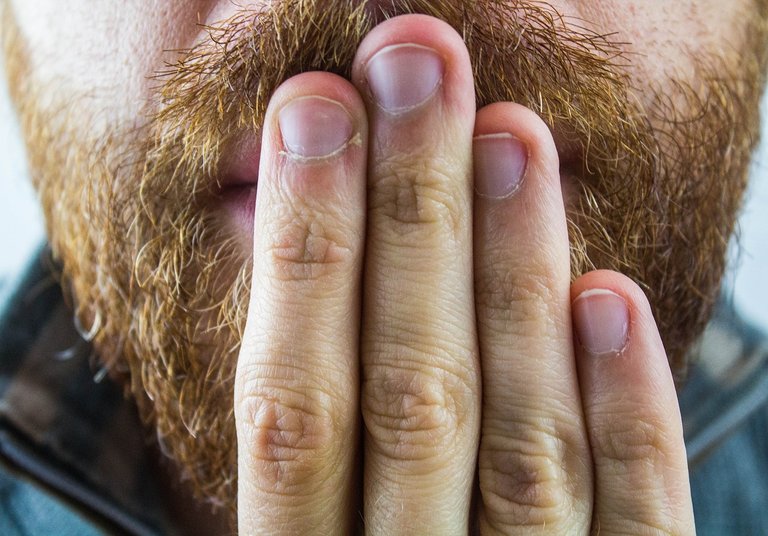What exactly might be going on in your body when you experience Hiccups ? Find out
We have all experienced hiccups at certain points in our life, but the question is, how many of us know or understand what causes it. If you don't know, than you in luck, because we are breaking the physiology behind hiccups right here right now, pay attention
So we going straight to the point 👇
Now the information you see below is true (in case you want a full story on the above headline .check here) Yeah! that same hiccups that you experience and before you know it, its gone in 24 to about 48 hours. Some have experienced it most of their life and they are looking for a cure. But that info aside, what exactly is a hiccup, how, when , does it happen and for how long?
Lets find out !
So, Hiccups happen when the diaphragm, the muscle beneath your lungs, contracts involuntarily, followed by the sudden closure of your vocal cords, producing the characteristic "hic" sound. Various triggers, like eating too quickly, swallowing air, or sudden temperature changes, can stimulate the nerves involved in this reflex arc. The exact cause isn't always clear, but it often resolves on its own without treatment.
Hiccups are usually harmless and tend to stop on their own. However, persistent hiccups (lasting more than 48 hours) might be due to underlying health issues like nerve irritation, digestive problems, or even some medications. Techniques like holding your breath, drinking cold water, or breathing into a paper bag can sometimes help stop them by interrupting the hiccup reflex arc. If hiccups persist for an extended period, it's best to consult a healthcare professional for further evaluation.
The image below give a short illustration as to what might be going on when you experience a hiccup. Check it out

Doctors and nurses could check for things that might be causing the hiccups, give you a physical check-up, or suggest tests to find the main reason and give you the right treatment to stop the hiccups.
Medical Management
Medical management for persistent hiccups involves various approaches depending on the underlying cause. Usually this can and will mostly include medications like chlorpromazine, baclofen, or metoclopramide, which affect nerve impulses or muscle contractions. Other methods include anesthetizing certain nerves, using a nasogastric tube to decompress the stomach, or even acupuncture or hypnosis in some cases. In most cases, these methods aim to interrupt the hiccup reflex or address the triggering factors causing the persistent hiccups.
Additionally, you see in more severe or persistent cases, particularly when hiccups are associated with underlying medical conditions such as central nervous system problems or metabolic disorders, doctors may explore more specialized treatments. These might involve nerve blocks, surgical procedures, or interventions targeted at addressing the specific medical issue contributing to the prolonged hiccups. Always consult with a healthcare professional for personalized guidance and treatment options if hiccups persist despite home remedies or initial medical interventions.

Possible Physiotherapy Management/Treatment
Physiotherapy for hiccups focuses on techniques that help relax and regulate the diaphragm, aiming to interrupt the hiccup reflex. These techniques include diaphragmatic breathing exercises, controlled breathing patterns, pursed-lip breathing which involves inhaling air through the nostrils and letting out that inhaled air gradually through the mouth while it assumed a pursed-lip position. The aim of pursed lip breathing is to let out excess air which might be causing a pressure imbalance in the airway. All these specific maneuvers can be employed to modulate the diaphragm's activity.
Physiotherapists like us may also employ relaxation techniques, postural adjustments, and even biofeedback methods to help control and minimize the frequency and intensity of hiccups. While there's no guaranteed method, these approaches aim to address the muscular aspect of hiccups and potentially reduce their occurrence.
PT techniques like pursed-lip breathing, controlled breath holds, or specific postural adjustments may be employed to influence the diaphragmatic rhythm and potentially disrupt the hiccup cycle. Furthermore, physical therapists might teach you relaxation tricks like slowly relaxing your muscles or imagining calming scenes to ease stress and maybe help stop those constant hiccups. These methods work on changing how you breathe and use your muscles, making the hiccups happen less often and not as strong.
Do you have any experience with hiccups that lasted more than 48 hours or one that might leave us wondering what exactly could have gone wrong? please do share with us in the comment section and let us now how or what helped you overcome it
Resources Consulted
- https://www.medicalnewstoday.com/articles/9896
- https://emedicine.medscape.com/article/775746-overview
- https://www.nhs.uk/conditions/hiccups/
- https://bestpractice.bmj.com/topics/en-gb/1040
- https://www.ncbi.nlm.nih.gov/pmc/articles/PMC5072913/
- https://www.smithsonianmag.com/history/the-curious-case-of-charles-osborne-who-hiccuped-for-68-years-straight-180980232/

Congratulations @sam9999! You have completed the following achievement on the Hive blockchain And have been rewarded with New badge(s)
Your next target is to reach 39000 upvotes.
You can view your badges on your board and compare yourself to others in the Ranking
If you no longer want to receive notifications, reply to this comment with the word
STOPTo support your work, I also upvoted your post!
Check out our last posts:
Thanks for your contribution to the STEMsocial community. Feel free to join us on discord to get to know the rest of us!
Please consider delegating to the @stemsocial account (85% of the curation rewards are returned).
You may also include @stemsocial as a beneficiary of the rewards of this post to get a stronger support.